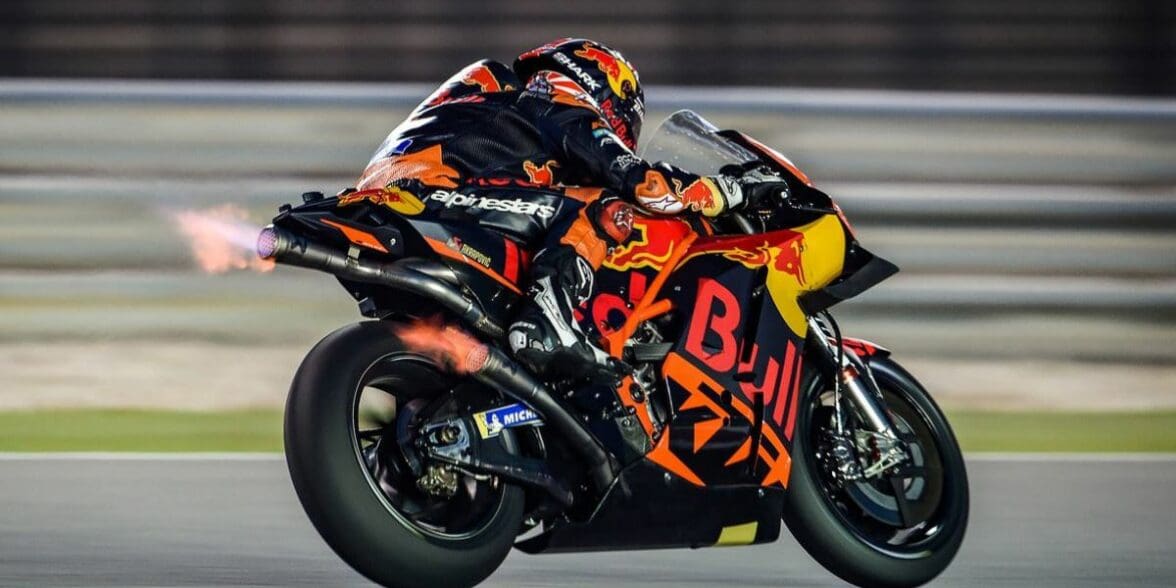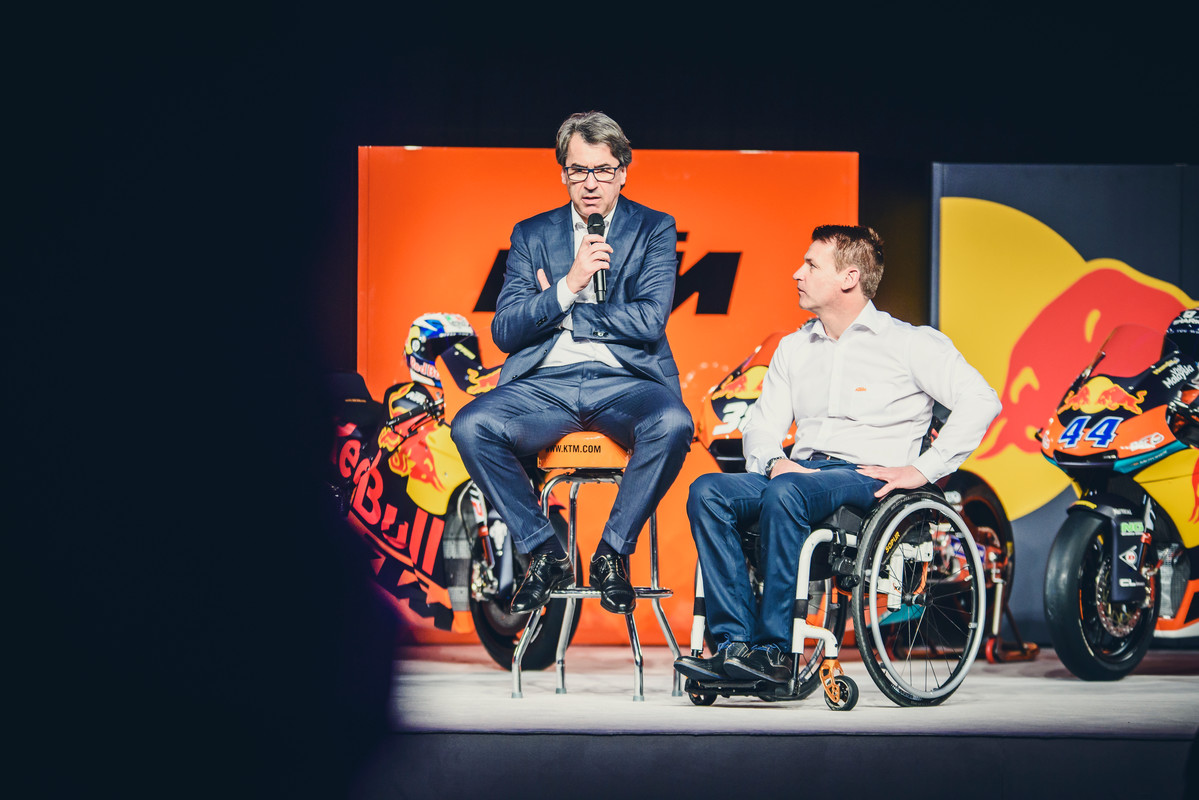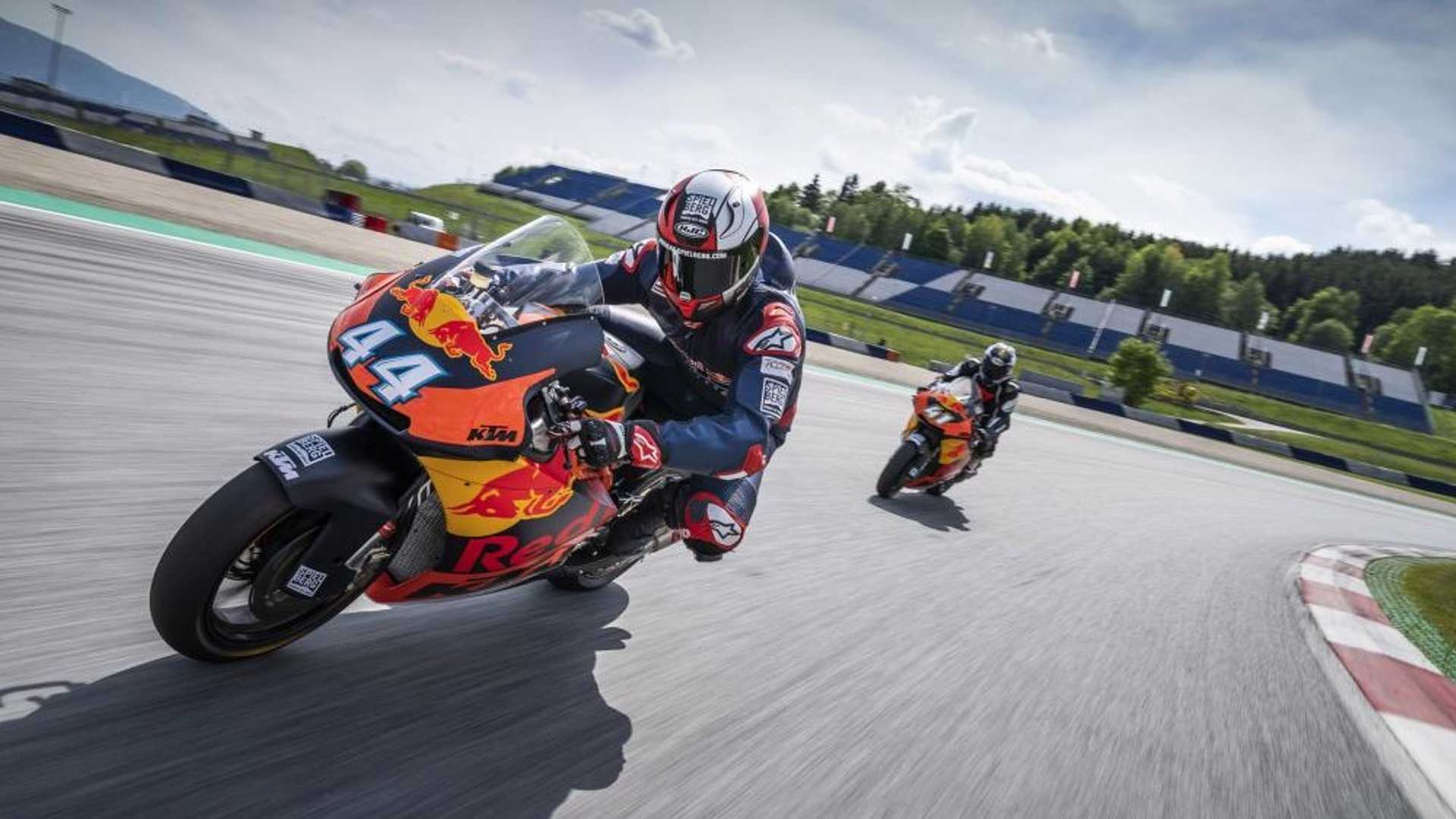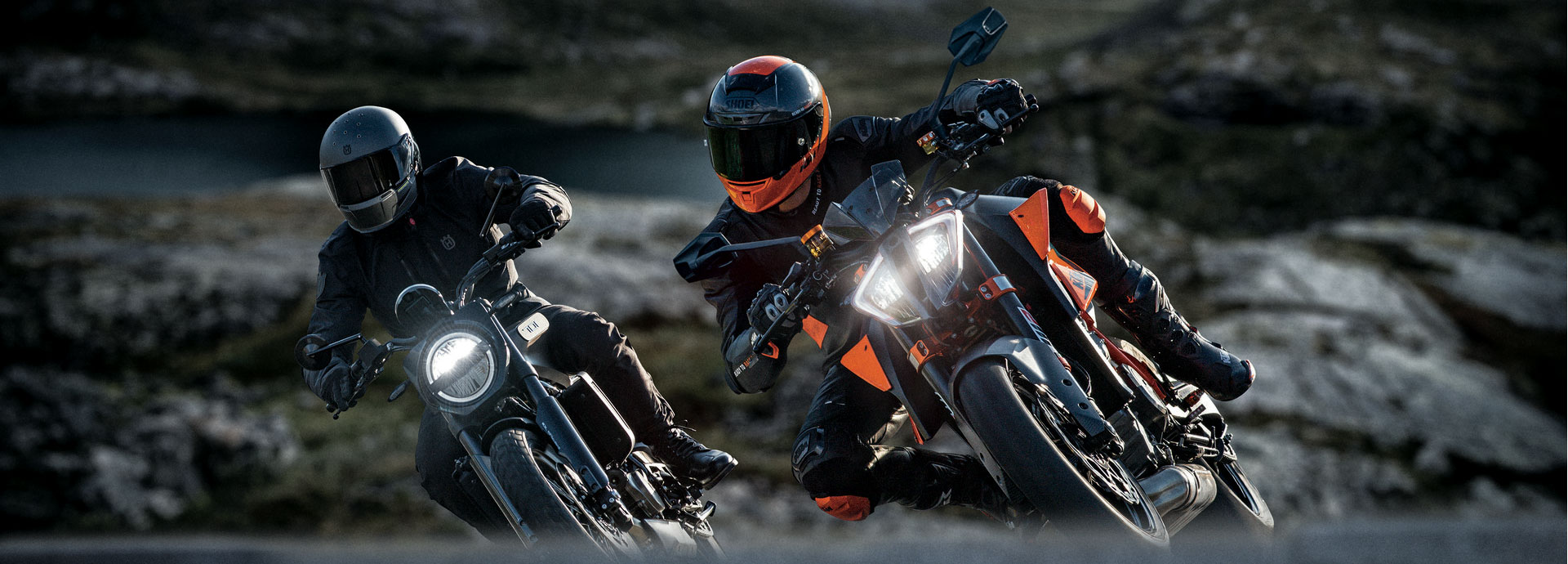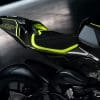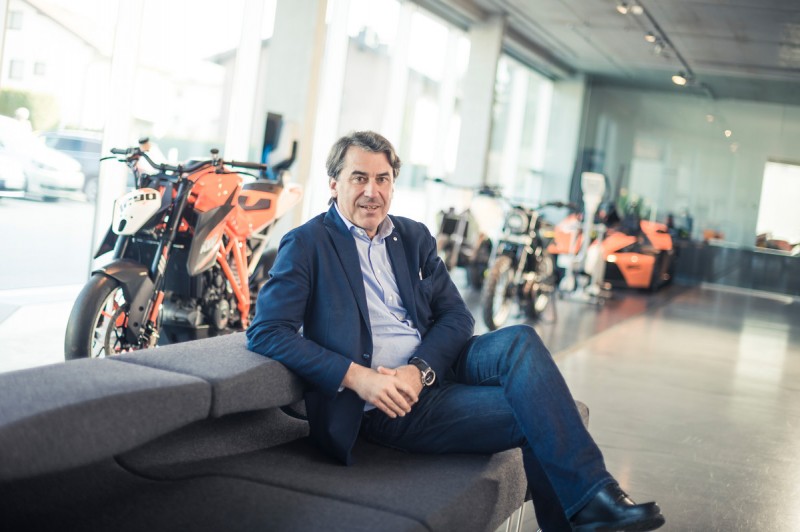KTM’s CEO, Stefan Pierer, is not a very big fan of electrification when it comes to bikes on the track. It’s gotten to the point where he’s flat-out said it to TopSpeed – and his perspective is a much-needed perspective when it comes to the less-said cons of electric motorcycles.
“As President of ACEM, I can say that, unlike the automotive industry, we have a clear global vision of where we are headed,” he says.
“We are assuming that with 48-volt electrics up to A1 class (that is 11 kilowatts or 15 hp), a lot will become electric in the next ten years, especially in Europe.”
Source: RRW
“That applies to scooters and mopeds. The whole two-stroke engine will go away. Everything that concerns motorized two-wheelers over 48 volts is going in the direction of e-fuels. There are very clear development plans between the manufacturers.”
“And that’s how we see it in the MotoGP World Championship. In the foreseeable future, we’ll be using e-fuels in MotoGP. My idea was, and I talked about it with those involved in 2021, to start earlier in Moto3 and Moto2 in order to gain experience.”
Source: RideApart
Pierer’s predictions are hinged on the opinion that synthetic fuel is a better alternative – and we kind of see his point. It’s CO₂-free (or low-carbon), it would allow a bike to keep many of the parts that are traditional for a petrol-powered engine, and upkeep would likely be cheaper…a lot cheaper.
Low CO₂ gasoline isn’t a new concept. Volkswagon has already been spending nights in the lab on a lower-carbon fuel than what Germany already has; and with the country’s ‘R33 Blue Diesel,’ (which has been in use in Germany for the past couple of years with great success) now making way for a lower-carb option called ‘Blue Fuel’, the options KTM could have are keto-promising…at least in Germany.
There’s a darker slant to electrification, too.
Source: Pierer Mobility
The big problem, Pierer stresses, is that the big companies have completely sidestepped using low CO₂ gasoline for the track, arguing that “the costly process of mining materials for battery production has a negative impact on the environment, let alone the fossil-fuel consumption to transport the MotoGP paddock around the world.”
“For a MotoGP motorcycle that drives a racing distance on 20 liters of fuel today, you would need a 500 kg battery to achieve comparable performance and range and to create the same energy density,” Pierer explains.
“Today we have 100,000 spectators at the MotoGP events that come because of the combustion engines.”
The most shocking fact he’s tossed out?
“The [electric bike] batteries in the paddock are charged with diesel generators. The CO2 emissions are steamed into the atmosphere, making you sick.”
Diesel generators? Yikes.
The irony is hilarious – and I don’t think the sponsors are told about that bit.
Source: KTM blog
“Until 2035 I see no replacement for the combustion engine in GP sport. And what will happen to the millions of existing combustion cycle machines?”
What do you think? Drop a comment below letting us know what you think – you know we love to hear from you.
In the meantime, be sure to subscribe to our newsletter, where our main man Cameron Martel curates the best of the best twice a week so that you don’t have to check back for new tidbits every other hour.
Hope y’all are having an amazing 2022, and as always – stay safe on the twisties.


